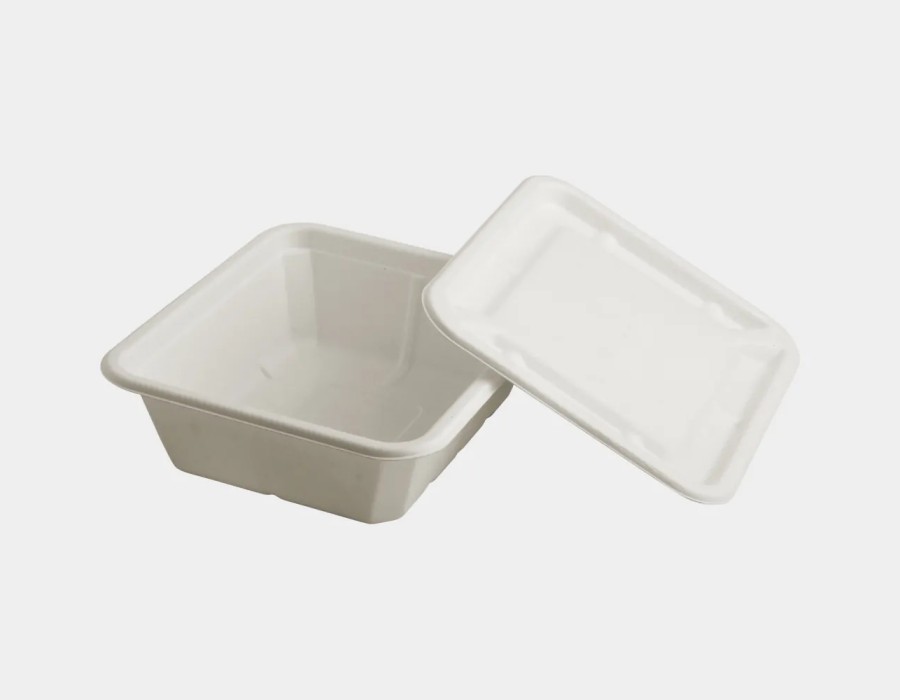With growing awareness around environmental protection, businesses and consumers alike are making conscious choices to reduce waste and adopt sustainable practices. One significant change that’s gaining traction across the food and hospitality industries is the use of biodegradable food containers. Unlike traditional plastic packaging, biodegradable options are designed to break down naturally, helping mitigate plastic waste's long-lasting impact on our planet. Let’s dive into the environmental benefits of switching to biodegradable food containers.
Reducing Plastic Waste
One of the most compelling reasons to switch to biodegradable food containers is their potential to reduce plastic waste. Traditional plastic containers take hundreds of years to decompose, leading to a buildup of waste in landfills and oceans. Biodegradable containers, by contrast, are made from natural materials like cornstarch, bagasse, and other plant fibers, which decompose relatively quickly. By switching to these eco-friendly alternatives, businesses can significantly reduce their plastic waste footprint.
Supporting a Circular Economy
A circular economy emphasizes reducing waste, reusing materials, and recycling products to keep resources in circulation for as long as possible. Biodegradable food containers align with this philosophy by using renewable materials and breaking them down into natural elements. Unlike single-use plastics, biodegradable containers return to the earth without harming ecosystems, closing the loop in resource use. By adopting biodegradable packaging, companies actively contribute to the circular economy and promote a more sustainable way of doing business.
Lowering Carbon Emissions
The production of plastic containers is energy-intensive and heavily reliant on fossil fuels, which contribute to greenhouse gas emissions. In contrast, biodegradable food containers are made from renewable resources, such as agricultural byproducts, which require fewer resources. Additionally, as they break down, they release less carbon dioxide and methane compared to plastic. This lower carbon footprint not only helps mitigate climate change but also aligns with global efforts to reduce greenhouse gas emissions.
Protecting Marine Life
Plastic waste often finds its way into oceans, harming marine life that mistakes it for food. Plastic containers and microplastics are particularly dangerous, as they can accumulate in marine food chains, affecting species' health and biodiversity. Biodegradable food containers, on the other hand, break down naturally and do not release harmful toxins, reducing the risk of ingestion and entanglement for marine animals. By switching to biodegradable options, we protect ocean ecosystems and contribute to the well-being of marine life.
Minimizing Landfill Impact
Landfills are major sources of environmental degradation, polluting soil, water, and air. Traditional plastic containers can take centuries to decompose, adding to the burden of waste in landfills. Biodegradable food containers, however, decompose within a matter of months to a few years, depending on the material. As they break down, they enrich the soil rather than leaching harmful chemicals into it. By switching to biodegradable packaging, businesses help alleviate landfill congestion and contribute to healthier soils.
Promoting a Green Brand Image
Making the switch to biodegradable food containers is not just an environmental decision; it’s also a marketing advantage. Modern consumers are increasingly choosing brands that demonstrate a commitment to sustainability. By offering biodegradable packaging, businesses can improve their brand reputation, attract eco-conscious customers, and strengthen loyalty among existing clientele. This green brand image not only reflects social responsibility but also helps differentiate a brand in a competitive market.
Encouraging Sustainable Practices in the Industry
Switching to biodegradable food containers sets an example for others in the industry to follow. When businesses prioritize sustainability, they encourage others to adopt similar practices, creating a ripple effect throughout the supply chain. By choosing biodegradable containers, companies can influence suppliers, partners, and customers to embrace environmentally friendly practices, amplifying the positive impact on a broader scale.
Final Thoughts
Switching to biodegradable food containers may seem like a small change, but its environmental benefits are substantial. From reducing plastic waste to protecting marine life and supporting a circular economy, biodegradable containers are an impactful step toward sustainability. As more businesses make the shift, we move closer to a cleaner, greener future, where every choice contributes to a healthier planet.





Comments